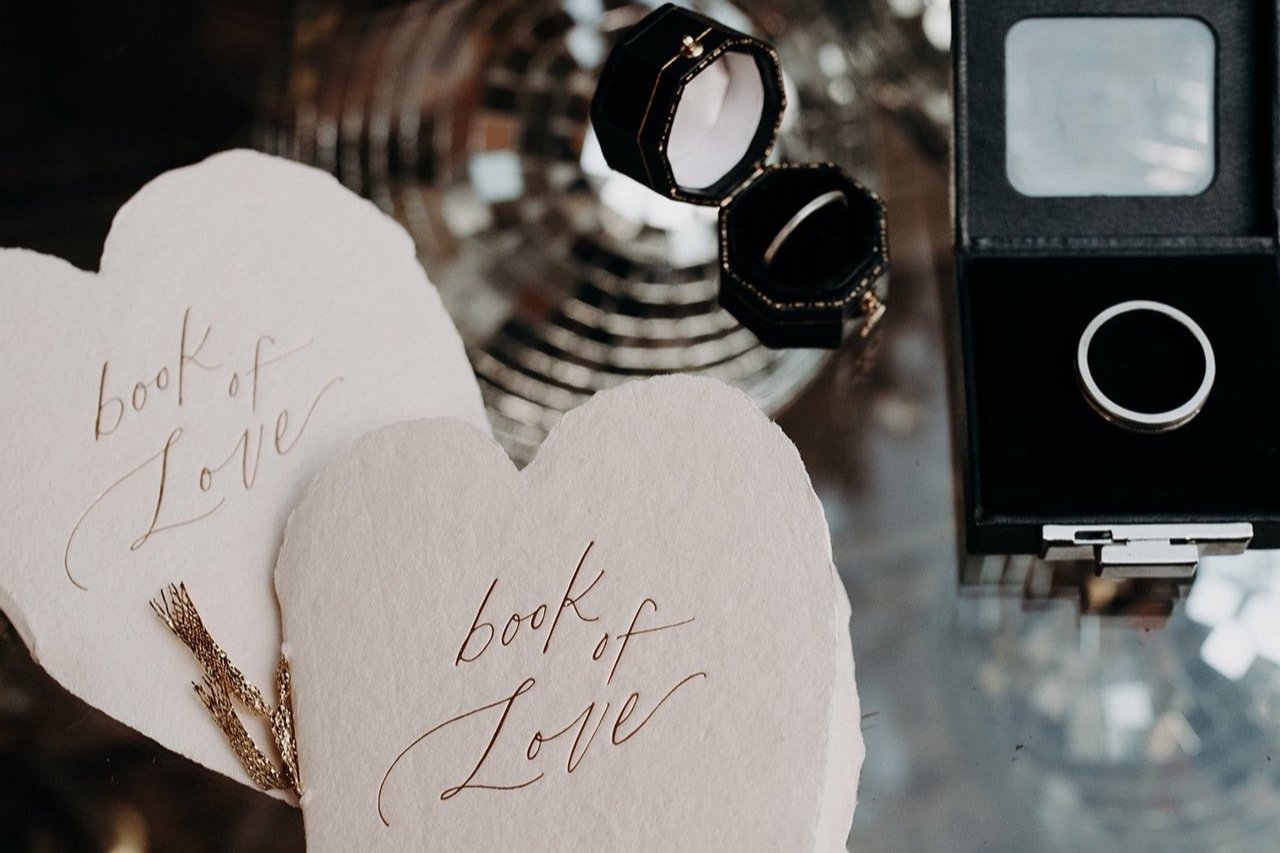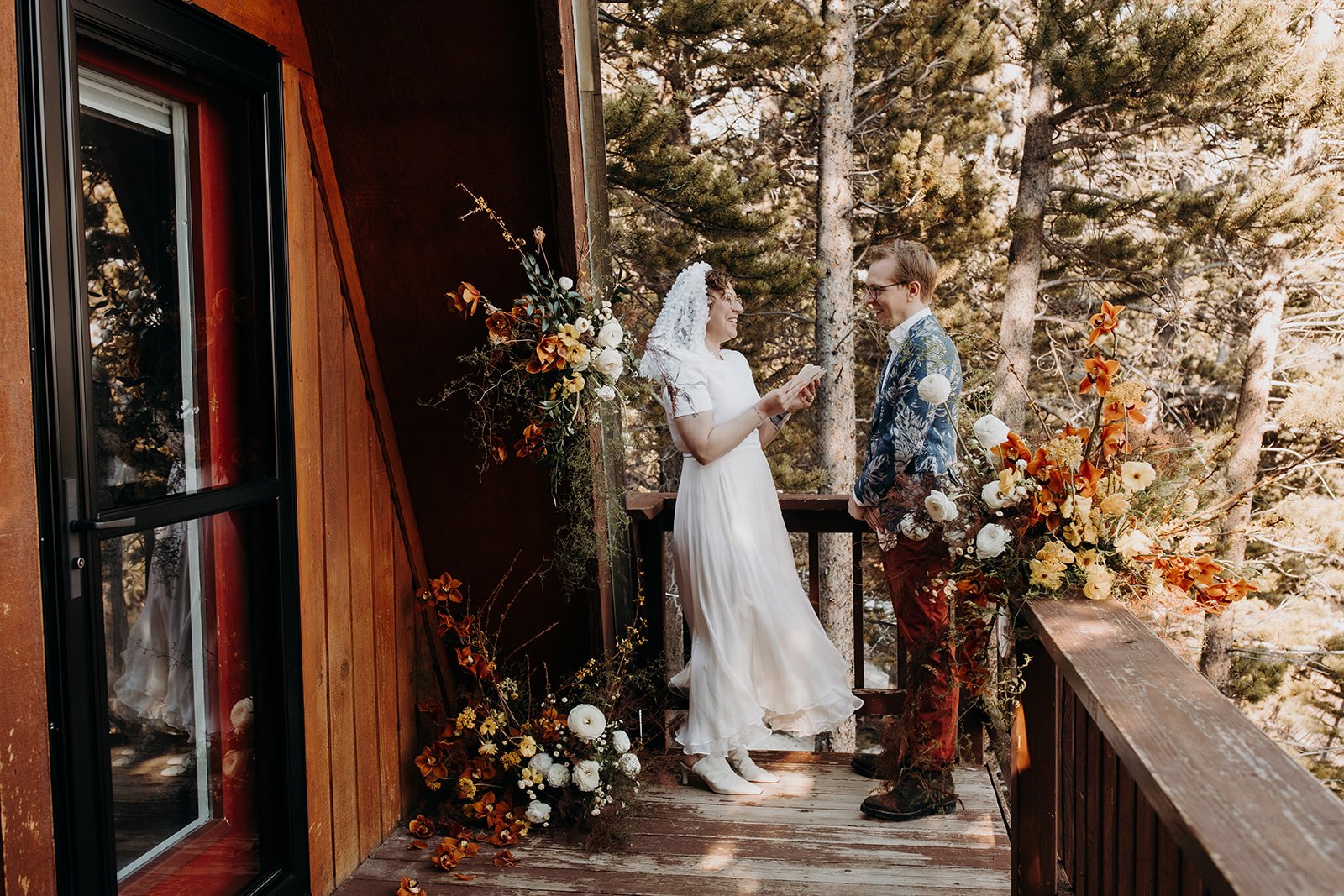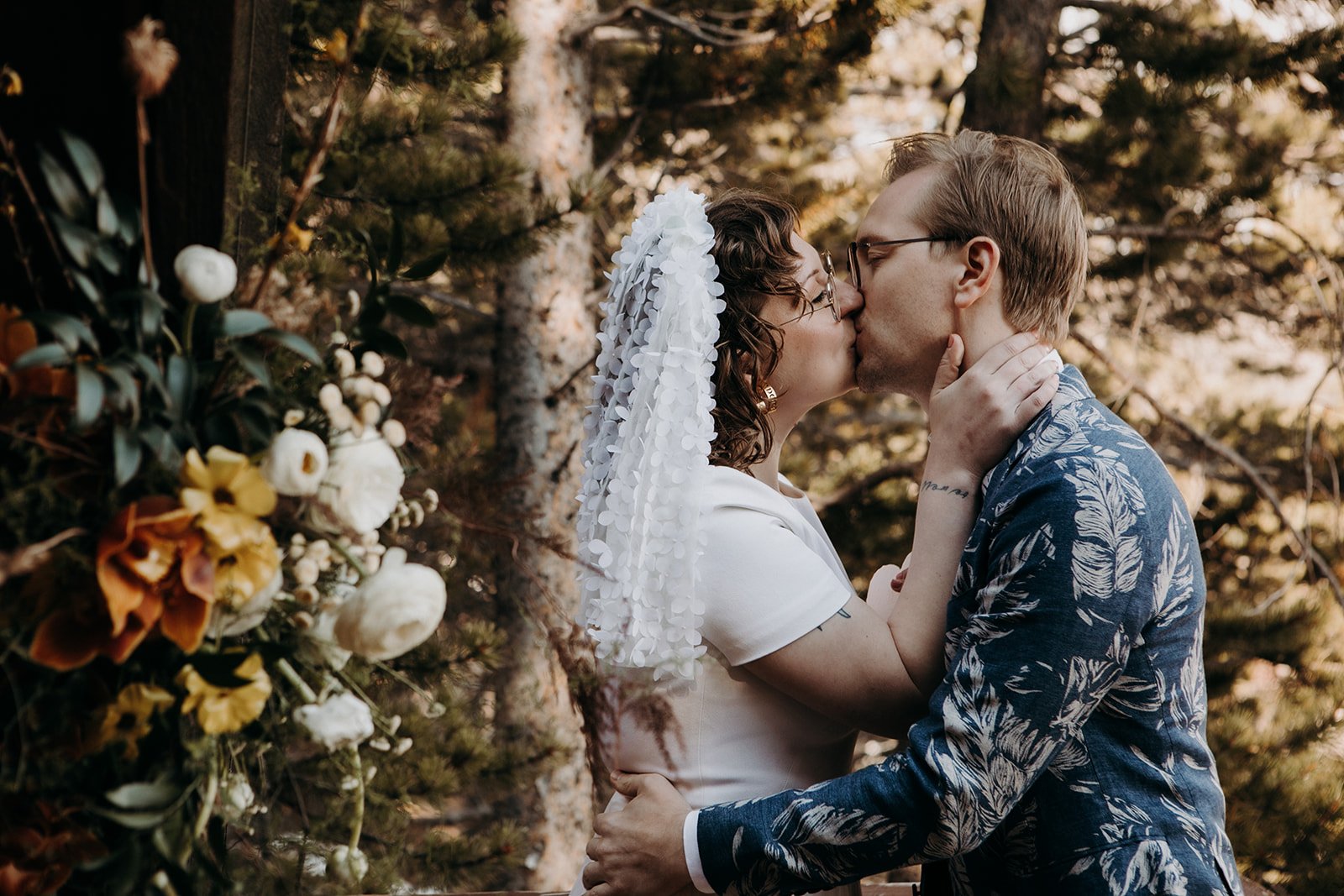6 Tips for Writing Your Wedding Vows
Writing your personal vows can be tricky. You have all these beautiful feelings and thoughts about your partner, but it can be hard to put those feelings into words. No matter what, if you do your best to speak from the heart, your partner will feel so seen and loved. Here are our best tips and tricks to get the juices flowing!
1.Take your time
Dedicate several months before your ceremony to begin writing your personal vows. This will give you time to really consider what it is you want to verbally commit to your partner during your ceremony. Keep a note tab on your phone or a notebook handy for whenever ideas of what you want to say come to you.
2. Be honest
When listing your commitments be honest with yourself if you’re comfortable vowing those oaths. Consider integrating your shadows into your vows: acknowledging your flaws and pairing it with your commitment to resolve any pain created.
3. Use genuine inspiration
Have a favorite poem, song or saying that perfectly depicts the way you feel about your love? You can use quotes and lines from poems and songs in your personal vows. Of course you want the bulk of what you say to be your own words, but incorporating lines that feel sacred to the both of you is very romantic and can serve as a launching point for your writing.
4. Get on the same page
While you may not want to share your exact vows with your partner before the ceremony, it can be helpful to confirm with your fiancé if you two want to use a similar format or template for your personal vows or if you’ll leave everything about your personal vows a surprise for each other. Make sure you’re both comfortable with this decision.
5. Make it legible
If you hand wrote your vows, consider typing and printing in a large, legible font to ensure you have ease of reading your vows during the ceremony. If your handwriting is easy to read, go on with your bad self and hand write those vows! Consider having a friend who is gifted with copy editing review for grammatical corrections.
6. Talk with your officiant
Your officiant is here to facilitate a ceremony that is most honoring to your love story and your marriage. Share with them what you’ve liked and disliked in ceremonies you’ve witnessed before. Brainstorm with them ideas on a flow that will work well with the types of vows you two would like to share, whether that be a combination of traditional and personal vows, only personal vows or a message from the officiant. If you want your officiant to share a message, let them know if you want it to relate to your personal vows. Remember, each state (in the U.S.) has their own requirements for what must be stated and signed to legalize a marriage. Your officiant will inform you of the legal requirements.
Are you self-solemnizing? Meaning, you are not using an officiant to legally oversee the ceremony. Keep in mind self-solemnizing is only legally recognized in the following states: Colorado, California, Illinois, Maine, Nevada, Wisconsin, D.C., Kansas and Pennsylvania. Talk to the records office for the county in which you plan to get married to confirm the legal aspects of your ceremony.
For depth and details on how to structure your ceremony with or without an officiant, download the Self Solemnization Ceremony Script Template!





